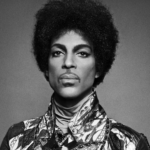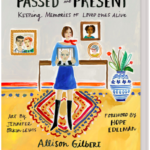(This piece was inspired by an article I read today in the NYT – you can find it here.)
Last night was the first night of Hanukkah. The holiday falls much earlier than Christmas this year, which is always nice for parents like us. There is less to compete with. Trees aren’t up yet in many homes and my kids aren’t hearing talk of Santa lists, although I’m sure that talk will start tomorrow as Christmas is coming and the birds are getting fat (“please to put a penny in the old man’s hat”). We managed to keep the emphasis on the candle lighting and prayers, surrounded by very good friends who live in Brooklyn. Of course, gifts were involved, but they were small as we do eight small gifts during the course of the holiday. Walking around town, we were approached by the Lubavitch who use this very popular time of year as a time to turn Jews onto religion. They were giving out menorahs, singing songs in the street around an over-sized candelabra and inviting Jews into their Mitzvah Mobile.
I won’t say we weren’t enjoying it. On the contrary, I was so proud. I felt like I was in Israel again. I passed a guy and gal singing the blessing over the candles in the street (after being given a menorah in the street, she apparently called her mother to tell her she was lighting the candles). After all, it’s a fun holiday full of cultural traditions like eating latkes and special donuts, spinning dreidels and getting gifts. What’s not to like?
When I was a little girl, Hanukkah was a big deal. I’m not sure when it became so commercial in the U.S. but by the time I was a little girl in the 1970s, it had become a holiday revolving around presents (at least in our home). My mom made a very big deal out of the holiday and not one penny was spared, even though we did not have much. She made the holiday into our own version of Christmas.
But the funny thing is as a Jewish adult, I now know that Hanukkah isn’t a super big deal. It’s about a time nearly 2,000 years ago when the Jews were being forbidden their heritage and were being denied religious practice. They took up arms to protect themselves, forming an army called the Maccabees. After fighting for a few years, they reclaimed their temple in Jerusalem and prepared for a rededication but they found only enough purified oil to kindle the temple light for a single day. The real miracle is that the oil lasted longer than others thought, which was eight days, and the Maccabees were eventually successful at achieving their fight for religious and political freedom. That’s the real meaning of the holiday about the plight for freedom the Jewish people have long faced.
I am not denying that we shouldn’t be celebrating our freedom every December, certainly we should be. However, the act of giving gifts was created purely because of Christmas. It is the gifts that my kids look forward to receiving and the story of Hanukkah has been minimized, there is no question, I’m sure in most homes.
This weekend I told several outsiders who don’t observe Hanukkah how I feel about the commercialism of the holiday and they were genuinely surprised. We don’t have lights outside our house the way non-Jews have, much to my daughter’s disappointment. It’s just not that type of holiday and I feel that lights outside our house would be sacrilegious. It’s not easy to explain to my children how our holiday is different to Christmas and why our celebration is so vastly different. As a child, I enjoyed helping my friends decorate their trees and hopefully one of my friends will take up my request for my daughter to join in that tradition with them. There is certainly nothing wrong with joining in.
When I talk about freedom, I’m looking through the lens of one who thinks about the 6 million who died in the Holocaust every day, and I’m also remembering my own childhood. As one of the only Jews in my class year after year growing up in the south, I was one of the only children to take the day off for Rosh Hashanah and Yom Kippur. Every holiday, I stood up and belted out Christmas songs at the top of my lungs during the school show but I secretly pined for the inclusion of Hanukkah songs and wondered why we couldn’t be included. When I was in first grade, I had a teacher I loved. I remember it vividly. It was 1976, the year President Carter was elected. He got voted in and the holiday crept upon us. The tree went up in the classroom, and the creation of ornaments began. I remember taking them home, not knowing what to do with them. And then the class celebration came and I was curious, as always, to the traditions of the holiday. I loved the music, I loved the lights, I loved the spirit. And then one classmate got up and started chanting a song about how Jews don’t celebrate Christmas and about how different we are. And another classmate joined him. And then were was a group of kids prancing around the tree singing about me and my heritage. I didn’t understand.
My kids would have no comprehension of this kind of behavior. They go to a school where everyone takes off for the Jewish holidays. Come Hanukkah, their friends know the story behind the holiday and beg their parents to come for a candle lighting at our house. Their friends envy the fact that the holiday falls so early in the month and that they get eight gifts (even though they are small).
They have the freedom even I didn’t have as a child. This is what the Maccabees fought for and this is what we celebrate on Hanukkah.








 Follow
Follow





Yes! Amen! “This is what the Maccabees fought for . . . ”
Really loved this post.
That means everything, Nina. xxxoo
Beautiful. We too celebrate with gifts but eight small ones. I really don’t feel the need to try and compete with Christmas. Luckily our daughter (now 7) is proud to be Jewish and also understands that others (most!) in our neighbourhood celebrate Christmas.
Funnily enough, one of her friends who isn’t Jewish is singing a Hanukkah song at her school’s holiday concert. The girl and this friend were singing the song together at a playdate here last week.
Only in New York, Sandra, at least I think.
Holly, I loved this piece – especially the description of what was going on in your neighborhood. So lovely. And I think there isn’t a Jew on this planet who doesn’t know the feeling of being called out in some form or another. It’s so unpleasant, but I’m so proud of how we respond as a people – proud of how you respond – with strength and grace and tenacity. 🙂 Thank you so much for sharing these stories. Happy Hanukkah!
Thanks, Aliza, and Happy Hanukkah!
Wonderful post! I too was the token Jew…never had kids dancing around the Christmas tree calling out my heritage, but the pennies thrown at me sure did hurt. I very much relate to this story and I’m sure there are many of us out there who would too.
We are just two peas….muwah!
I love how you wove this.
How honest it is.
How very YOU it is.
Happy Hanukkah to you and yours, girl.
(Keep telling your story. It’s what we’ve got, right?)
Galit, you inspire me.
This was very beautiful. And so well written, thank you for sharing. I never had such an experience growing up, Chanukah was recognized as Christmas was. But now we live in NC instead of NYC and I wonder how it will be for my daughter. Though we celebrate both holidays and I am working to find that balance needed to ensure we do not lose one for the other, but maintain the two. Either way I think she is experiencing what you did in school re: songs and whatnot, but at age 5 it is not yet bothering her. Thank you for sharing your experience and your story.
Thank you so much.
Holly,
This is beautiful. You remind us of how important it is to remember our cultural heritage and show everyone that it’s ok to do so.
You are so gracious, Estelle. Thank you so very much.